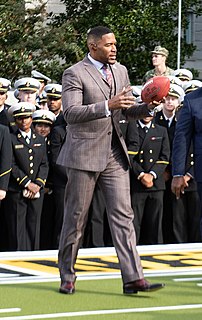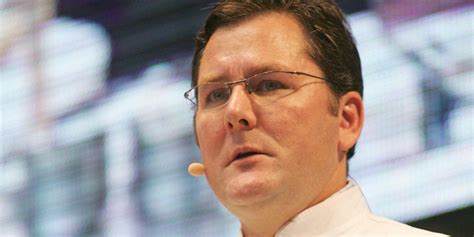A Quote by Richard Schiff
My parents grew up in the Depression. Despite the success that they both had in their lives, there's a certain mentality that tells you to finish all the food that's on your plate and not wasting anything and appreciating what's on the table.
Related Quotes
'Our parents' generation had it a lot tougher than we did. They had to live through the Depression, World War II, and then they had to, you know, try to pick up the pieces of their lives and bring up their children. And, it was a great example for us. I guess we grew up with a certain amount of the ethics our parents had, which is, you know: work hard, make your own way, be independent.
My parents inspired me by their example. They both grew up in the Depression, and both of them had to quit school when they were quite young to work, because there actually was no choice. So they've always impressed me with their resilience, their good spirits, their courage. I just remember them carrying on and just doing their lives. They really made a strong impression on me.
My parents were 30 years older than I was, and my parents had my brother and I ten years apart. My parents grew up in segregation, and they both lived in all-black neighborhoods and grew up with large black families. I didn't have any of that, and I didn't understand feeling so differently and being treated so differently.
My parents were both born in 1930. They grew up during the Depression. They wanted their children to have secure lives, to have a good salary and a pension plan. If I could've guaranteed that I'd be a best-selling writer, that would've been one thing, but nobody could say that. So I knew better than to say that was ambition.
From 13, I knew my family was different to anybody else's. You weren't allowed to talk back at your parents or look at them funny. You weren't allowed to leave food on your plate, you weren't allowed to keep the change when you went shopping. There were a lot of rules growing up; but I don't see anything wrong with that.
IMBECILE!" the chef shouted. "Next time why don't you just put your whole HAND in the food, hey? Yes, your whole hand, or maybe your FACE! I arrange the food on plates with care, are you understanding what I am telling you? It is part of the art form of cooking, yes? A lovely plate of food is a thing of beauty! And then you, NUMBSKULL, come along and put your fat greasy FINGERS all over my plate, and SHAKE the plate, and move my food all around the plate until it looks like pigs' vomit!" "Chef Vlad!" I cried out in delight.
Some parents were awful back then and are awful still. The process of raising you didn't turn them into grown-ups. Parents who were clearly imperfect can be helpful to you. As you were trying to grow up despite their fumbling efforts, you had to develop skills and tolerances other kids missed out on. Some of the strongest people I know grew up taking care of inept, invalid, or psychotic parents--but they know the parents weren't normal, healthy, or whole.
The absolute worst part of being depressed is the food. A person's relationship with food is one of their most important relationships. I don't think your relationship with your parents is that important. Some people never know their parents. I don't think your relationship with your friends are important. But your relationship with air-that's key. You can't break up with air. You're kind of stuck together. Only slightly less crucial is water. And then food. You can't be dropping food to hang with someone else. You need to strike up an agreement with it.



































